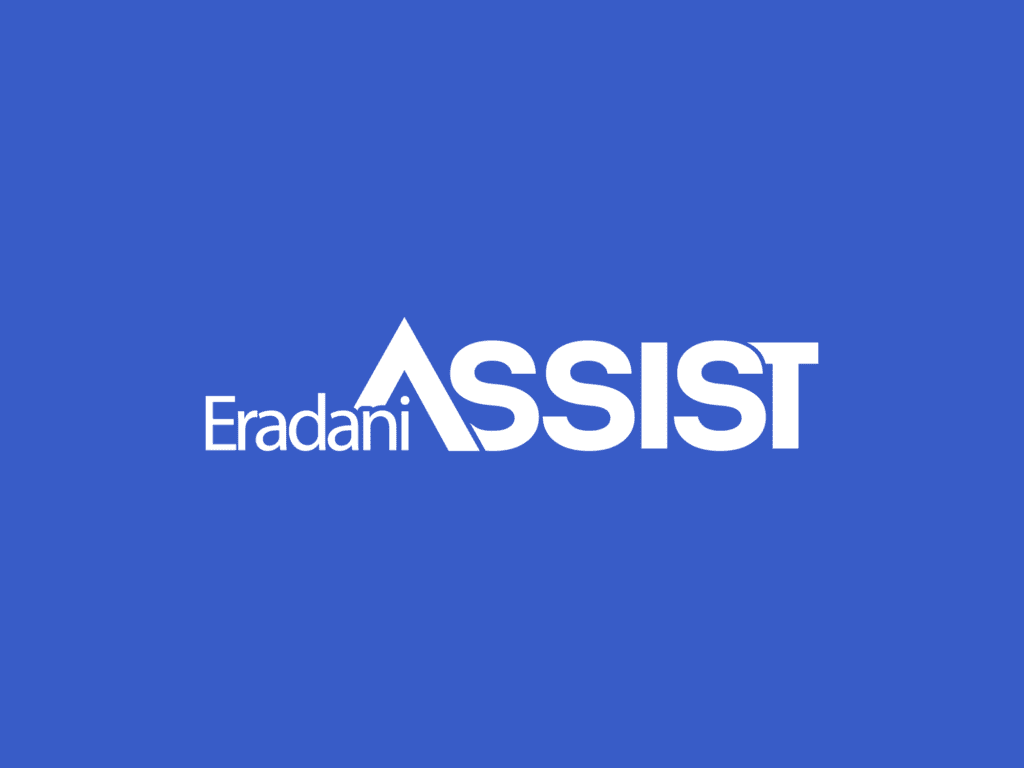I was skeptical of the value that generative AI tools like ChatGPT and Claude.ai could provide for building code until one of our salespeople showed me how he could generate real-world, useful IBM i-based integrations without having any programming skills. He used the latest release of Eradani Connect with its new AI-based Eradani Assist module and created those integrations in a matter of minutes. I was convinced. This blog post will discuss generative AI, its advantages and limitations, and how Eradani Connect can help.
In the 22 months since the release of ChatGPT, generative AI has emerged as a powerful tool for creating everything from custom images to blog posts (😉) to essays for homework assignments to software code. We have found that one of the most productive ways to use generative AI is to simplify the process of integrating software applications. Whether you communicate using REST/SOAP services, EDI, Pub/Sub event brokers, or direct application-to-application integration, generative AI can help you simplify and speed up the coding process.
At Eradani, AI-assisted application integration provides all the ease of use of low code platforms without the vendor lock-in and functional limitations of low code.
The Power of AI in Integration Development
Generative AI offers several compelling advantages for developers working on integration projects:
- Rapid Prototyping: AI can quickly generate initial code drafts, accelerating the prototyping process and allowing teams to iterate faster.
- Efficient Boilerplate Generation: Much of integration work involves repetitive, standard code structures. AI excels at producing this boilerplate code, freeing developers to focus on more complex aspects.
- API Exploration Assistance: AI can suggest potential integration approaches and provide helpful code snippets when working with unfamiliar APIs.
- Learning and Ideation: AI-generated code is a valuable learning resource and can propose novel solutions that developers might have yet to consider.
- Documentation and Consistency: AI can assist in generating code comments and basic documentation and in maintaining consistent coding standards across projects.
- Time and Cost Savings: By automating parts of the coding process, AI has the potential to reduce development time and costs significantly.
Beware of the Limitation
While the benefits are significant, it’s crucial to be aware of the limitations when using generative AI for integration code:
- Limited System-Specific Knowledge (especially for IBM i): AI models lack a detailed understanding of the proprietary APIs, data structures, and architectural nuances of specific systems (especially IBM i) they are integrating. This is especially true of IBM i, where publicly available information is limited.
- Potential for Errors: AI-generated code may contain logical errors or inefficiencies that aren’t immediately apparent. This requires a skilled programmer to review the code.
- Security Vulnerabilities: AI engines understand little about the varied security technologies that you must use for different integration projects. This lack of understanding could leave your system vulnerable to attacks.
- Limited Testing and Validation: While AI can generate code, it cannot comprehensively test the integration or validate that it meets all requirements.
- Complexity Challenges: As integration complexity increases, the reliability of AI-generated code tends to decrease. AI engines will struggle to understand the whole scope of a complex project or design effective solutions from scratch.
- Knowledge Currency: AI models may not always be up-to-date with the latest software versions, APIs, or best practices.
How Eradani Fills in the Gaps
To leverage the power of generative AI effectively in application integration projects:
- Eradani Connect Adds Deep IBM i Knowledge to the AI Generation Process: With Eradani Connect, users can quickly generate integrations into and out of the IBMerdf i while publicly available LLMs fail.
- Eradani Connect Adds RPG, COBOL, and JavaScript Knowledge: Eradani Connect’s proprietary code generators ensure that all generated code will be compatible with standard IBM i interfaces, including RPG and COBOL programs.
- Eradani Connect Generates Integrations Embedding The Latest Security Technology: Users can configure Eradani Connect to generate encrypted token authentication code, SSO code, OAuth code, or even connections to Multifactor Authentication systems. It automatically generates the code to encrypt all the data at rest and in transit.
- Integration Development Knowledge: Eradani Connect AI Assist is built specifically around integration technology and techniques. It provides the guardrails and guidelines to ensure the generated code is purpose-built for integration projects.
- Eradani Architects Are Available: While AI struggles to design systems that fulfill all business requirements, Eradani Architects are available to help gather requirements, scope integrations, and design solutions.
Moving Forward
Generative AI presents exciting opportunities for streamlining and enhancing the process of creating integration code. By using Eradani Connect’s new AI-based Eradani Assist module for integrations, developers can harness this technology to boost productivity, spark innovation, and tackle integration challenges more effectively. As with any tool, the key lies in thoughtful application – using AI to complement human expertise rather than replace it entirely.
If you want to learn more about Eradani Assist for application integration and how it might help you with your integration projects, reach out to us at www.eradani.com or via email at info@eradani.com. We can even have our sales guy show you how he did it himself! We look forward to hearing from you!


Dan has spent over thirty years leading companies that help customers implement new technologies in legacy environments. Previously, Dan led worldwide software development groups that built highly successful modernization and DevOps tools and was the CEO of Aldon, the leading provider of DevOps tools to the IBM i marketplace. To learn more about Eradani’s offerings, reach out to us today!

